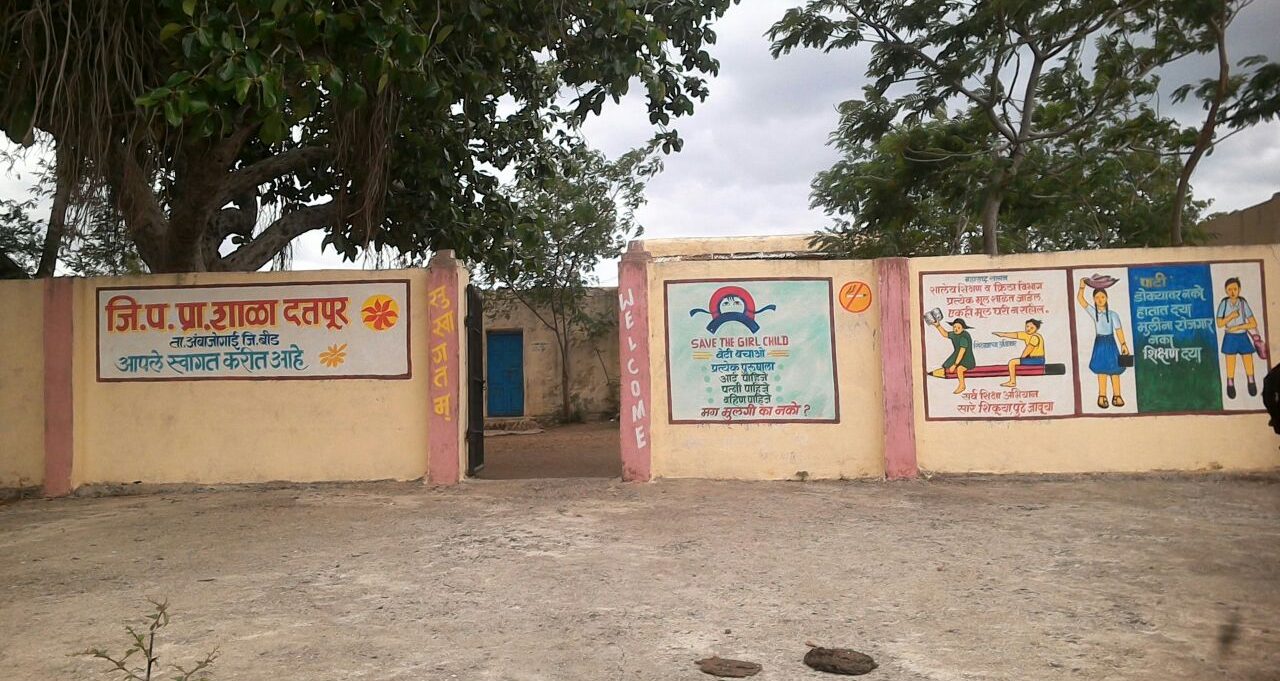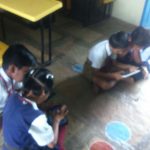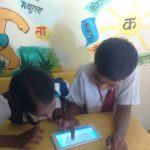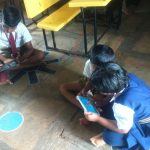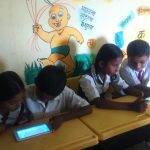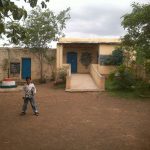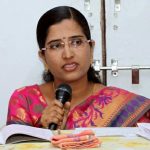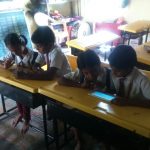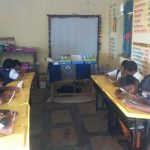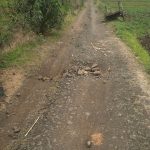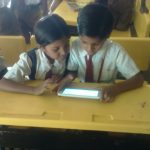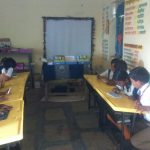Gunwanti Paraste, Beed (Maharashtra): A small revolution is happening at the zilla parishad primary school in Dattapur village in Ambajugai (taluka) of Maharashtra’s Beed district. The children of farmers and labours of the village that lacks basic facilities, including a proper road connectivity, are using tablets at their Marathi medium school that runs classes from standard I to standard V. Two teachers have taken the mission to make education interesting for these children. And in the span of three years, the school with a high dropout rate has seen student strength rise from 22 to 42. The two teachers convinced the villagers about the importance of school education and encouraged them to provide funds to arrange tablets for children. Now the school boasts of five tablets.
Jyoti Ingale-Shinde, one of the teachers said, “The school was in a deplorable condition when I joined three years back. There was no interest among the elders to send their children to school. We talked to educational officer Shahikant Hingole on how to utilise digitalisation and visual technology to make school education attractive for village kids. Hingole encouraged us to use the latest technology and we decided to buy tablets for kids. We needed funds to buy tablets and decided to take the parents into confidence first.”
The two teachers had several meetings with the villagers. Initially, they convinced the mothers about the benefits of e-learning and their husbands followed suit.
“We collected Rs75,000 from farmers and elders and bought five tablets, projectors and a Wi-Fi connection for the school. After downloading some educational applications related to science, Maths, English and Marathi, we started teaching the kids using the tablets,” she said.
Another teacher Sudhir Dhapate said, “Dattapur village is located in a remote area in Beed district and has no proper road connectivity. Most of the parents are farmers or working in others’ farms as labourers, so they don’t have time to send children to school. The tablet experience became an instant hit as we found that students easily understand the visual education. We also convinced some parents who are using Android cellphones to download some educational apps and learn.”
Dhapate said that parents have started using their cellphones for WhatsApp and messaging. “The schools in the neighbourhood have also shown interest in our tablet experiment and are planning to buy tablets for their students too,” he said.
Poonam Gitte, a class V student said, “I like to study using tablets as it is easy to understand lessons. Now I can also write my name in English. I use the visual medium to understand science subjects and solve Maths problems.”
Swara Shinde of class II said that tablets have made learning easy and attractive. Another student Mangesh Gitte said that through tablets he has been able to understand the solar system and the science behind it through attractive colour pictures and illustrations. “My parents feel proud when I write their name in Marathi and English,” he said.
Paraji Tukaram Chavan, a student’s father who runs a tea stall in the village said, “I am not so much educated but want my kids to acquire proper education. It’s a big achievement for our village that our children are using latest technology in school.”


